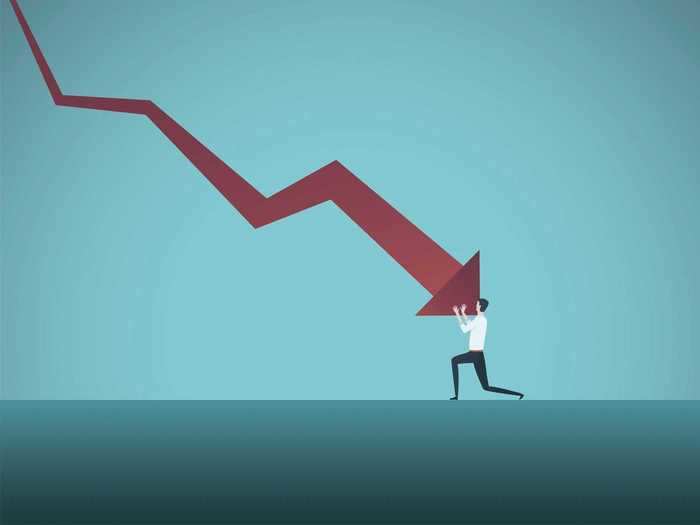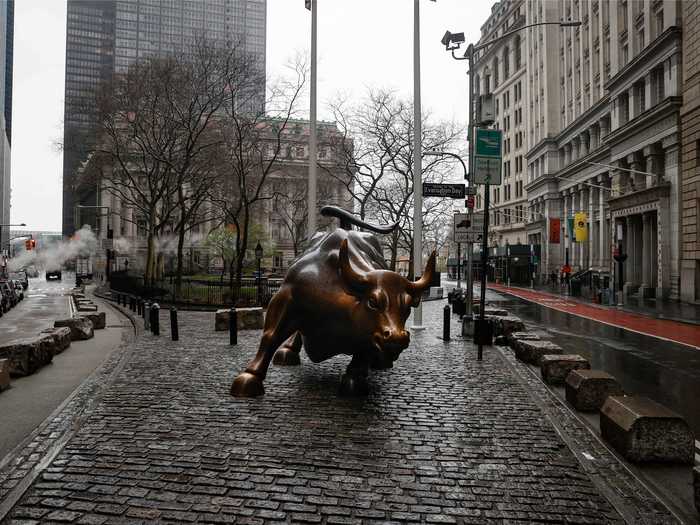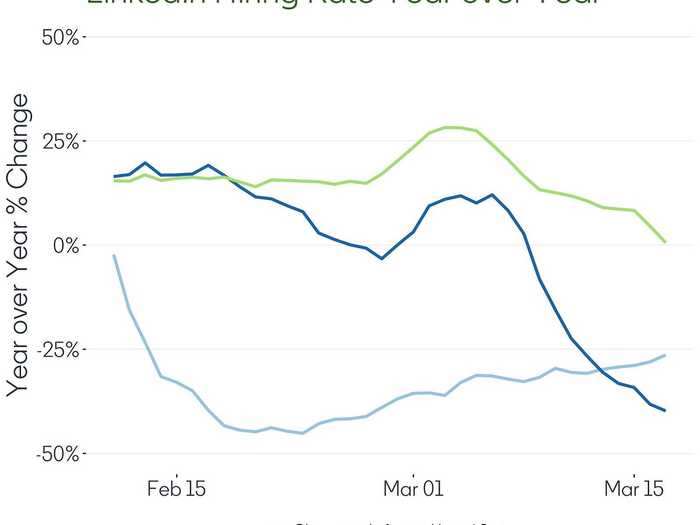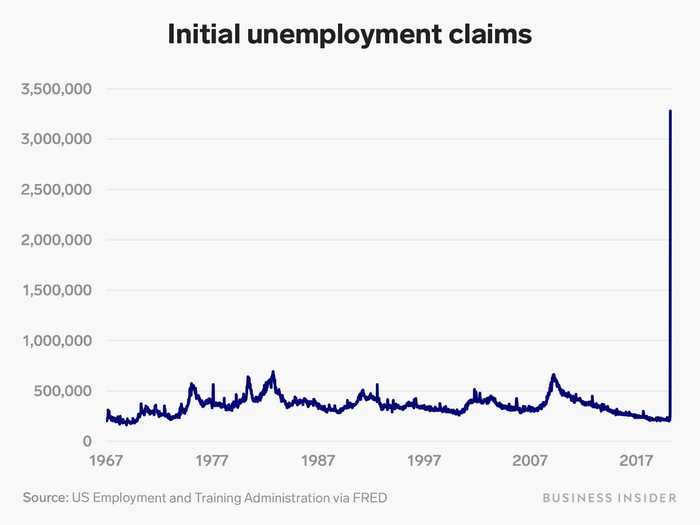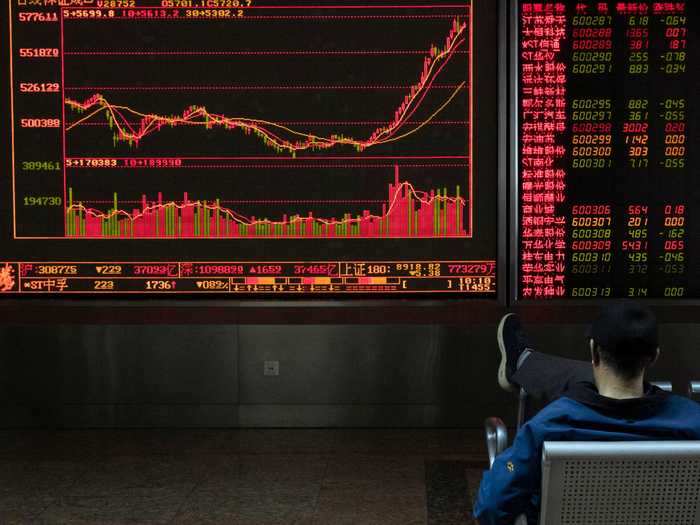Generation Z is worried they'll end up like older millennials if the United States enters another recession.ArtMarie / Getty Images
- Some of the oldest members of Generation Z are set to graduate into a possible recession, as the coronavirus pandemic continues to disrupt the economic outlook of the US.
- College seniors at the University of Southern California, where this writer graduated from in 2019, told Business Insider that this was a "worrisome" time. One recent graduate said that the impact of a recession would be "devastating" on her.
- If Gen Z does graduate into a recession, they could find themselves on the same financial path as older millennials, who are expected to be the first generation that is worse off financially than their parents.
- Visit Business Insider's homepage for more stories.
Tomas Mier, a first-generation college student, had big plans for his final semester at the University of Southern California: complete his internship, get good grades, and have his parents, who immigrated to the US from Mexico, watch him walk across the stage at graduation.
Then, the coronavirus pandemic hit. Suddenly, classes and work were moved online, and USC canceled its in-person graduation ceremony. But even those disruptions were eclipsed by the threat of the looming recession.
Mier and other Gen Zers have little time to mourn the loss of their final semester, because an economic collapse can set back their futures. It could leave them like the older millennials who graduated during the Great Recession, with grim job outlooks and a stagnation in financial growth that can potentially last almost 15 years.
Gen Zers know that this year, graduation caps will not be thrown into the air. But they're still holding out hope for economic prosperity — however much longer it may take to get there.
Read on to see how Gen Z has already been affected by the looming recession and to hear how college students and recent graduates are bracing for its inevitable impact.
Read the original article on
Business Insider
"I was pretty optimistic about the job hunt before, but now I'm a little nervous. I feel worse for my friends who are supposed to graduate this semester," Maya Tribitt, a student who was taking a gap semester for an internship in New York City, told Business Insider.
MJgraphics / Shutterstock
Tribitt moved from Los Angeles to New York City to complete her internship, which has now been moved online. She was also set to intern at the Tokyo Olympics, though that has since been postponed until 2021. As a result, she is still searching for a job for this summer.
"This is my last summer before graduating and I want to get as much experience as I can," Tribitt told Business Insider. "I've been writing cover letters almost every day and a few times in a row I've logged on to the application portal for an internship, just for the internship to be gone."
The New York Times' David Yaffe-Bellany reported that job listings between mid-February and mid-March dropped 29% in comparison to last year. Job postings for retail stores, in particular, fell 14%, while event job postings were down 20% and casino and hotel job postings fell 23%.
"I'm a little worried about ending up like those who graduated around 2008," Tribitt continued. "A lot of the fear people my age have about getting jobs right out of college have come from the horror stories of people 10 years older than us. It's really scary to think that might be our new reality."
Many millennials told Hoffower that they didn't have enough money to afford a mortgage — they still had to pay down their student debt.
Mat Najib/EyeEm/Getty
Gen Z was already coming into adulthood in a nation still reckoning with the fallout of the Great Recession and rising inequality rates.
Alliance/Shutterstock
As Business Insider's Hillary Hoffower previously reported, the millennials who graduated into the Great Recession are still facing a grim affordability crisis, which was triggered by student debt burdens and skyrocketing living costs. Many millennials are expected to do worse financially than previous generations — the first time generational economic prosperity has declined in such a manner.
Gen Z could potentially find themselves on the same path, as they were already set to enter the same world that millennials were struggling to grapple with.
Hoffower reported that 62% of adults ages 18 to 29 who have a bachelor's degree also have student debt. This is compared with 48% of adults ages 45 to 59 — or, in other words, Gen X. In 2019, Americans owed $1.5 trillion total in student loans, and college tuition has more than doubled since the late 1980s. Meanwhile, income for young adults has risen by just $29 since 1974, when adjusted for inflation — not nearly enough to keep up with ever-rising living costs.
Tomas Mier, a college senior at USC, said the possible economic situation was "really worrisome."
Tomas Mier, a college senior at USC.
Tomas Mier
"For those of us who come from low income families, there's an expectation that once we graduate, we're expected to help bring money home and bring food to the table for our families," Mier said. "I know that for a lot of us, that's going to be really difficult."
Phillips and Mier are two of thousands of college students nationwide who have had their senior years cut short, as schools move to online learning amid the coronavirus pandemic. Mier, a first generation college student, was looking forward to bringing his parents, who immigrated from Mexico, to his college graduation. But as of right now, USC's in-person commencement has been postponed indefinitely.
"My parents sacrificed so much for me by coming to this country," Mier said. "I was so excited to celebrate this big accomplishment with them in May."
College seniors and recent graduates call their possible job situation "worrisome" and "devastating."
Sarah Nehemiah, a recent college graduate.
Sarah Nehemiah
Sarah Nehemiah, a recent college graduate who was taking a gap year in New York City as she contemplated applying to law school, said the economic downturn her generation is facing is "unfathomable" and that its impact will be "devastating" on her.
As a result, Nehemiah says it is certain that she will enter law school for "job security down the road."
"I no longer have the luxury of time to figure out what the next steps are for me," Nehemiah said. "I have a couple of friends who are just finishing up undergrad, and they are completely out of luck in this job market — one has interned for the same company for four years with promise of a job, and the company can no longer hire him. Another friend has a Fulbright and zero job prospects — it's unfathomable what is happening during this economic downturn."
Studies have shown that people who entered the workforce during the Great Recession had their careers handicapped.
The Wall St. Bull is seen standing on a nearly empty Broadway in the financial district, as the coronavirus disease (COVID-19) outbreak continues in New York.
Reuters
An April 2019 Stanford study found that students who graduate into and start working in a recession often have to contend with higher unemployment rates and lower starting salaries, causing a stagnation in economic prosperity which can linger for 10 to 15 years.
And college seniors are already feeling the effects of the disruption.
"There's [always] a certain anxiety that comes with finding a job. But with this all coming on, it's just tenfold," Matthew Phillips, a senior at the University of Southern California, told Business Insider. "We have no idea what's going on. There's just so much unknown on top of what's already, you know, the big unknown after graduating from college."
And hiring rates are plummeting as COVID-19 cases continue to rise in the US.
LinkedIn
The week ending March 7, there were 1.7 million people on unemployment insurance in the United States. But the week ending March 21, nearly 3.3 million people filed new jobless claims.
Business Insider / Andy Kiersz
In that week, more people filed for unemployment than were initially in the program. These unemployment figures are the worst numbers since 1982, which saw a then-record breaking 700,000 filed jobless claims; worse than even the 2008 recession which, at its peak, saw 800,000 job losses a month.
Since then, over 30 million Americans have filed for unemployment.
Business Insider's Taylor Nicole Rogers previously reported that Generation Z is expected to be disproportionately affected by coronavirus layoffs.
Phynart Studio/Getty Images
On the bright side, remote work allows companies to hire flexible workers, opening up opportunities for those who cannot relocate to big cities and for those who are traditionally marginalized or sidelined in the labor force.
Crystal Cox/Business Insider
Business Insider's Shana Lebowitz previously reported that companies are beginning to learn that employees can still get their work done, despite not coming into an office. "Social distancing" — like what is happening now as a result of the coronavirus pandemic — actually has the possibility of creating 15 million jobs in the next decade.
At the same time, remote work isn't for everyone, and there are some downsides that come with it. Some do not have constant access to technology, or a safe at-home working environment. Business Insider's Natalia Lusinski reported that there are many unique challenges that come along with working from home, such as technological difficulties, the lack of set office hours, a dearth of human interaction, and feelings of loneliness.
And even remote work doesn't have a steady or reliable future. The bank UBS's Chief US Economist Seth Carpenter notes that if a recession does hit, once people begin to enter and reenter the workforce, many will probably focus on paying down debt or boosting savings, rather than discretionary spending. This decreased spending will hurt numerous retailers, many of whom employ Gen Zers early in their careers.
Experts are expecting the United States to plunge into a recession before the coronavirus pandemic is even over.
An investor monitors stock prices at a brokerage in Beijing in January 2020.
Associated Press
The generation that will feel the brunt of an economic downturn is Generation Z, most of whom have yet to even graduate from high school. According to the Pew Research Center, Gen Zers are between the ages of 7 and 22 this year.
The oldest of Gen Z have already spoken out about their canceled job interviews and internship opportunities amid social distancing policies necessitated by the pandemic, as colleges move online and graduations are postponed across the nation.
The full impact that the coronavirus will have on the job market has yet to be seen. But for those who have not become unemployed, many jobs, college classes, and internships have become remote, which poses its own advantages and challenges.

